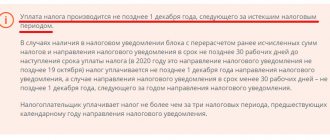Seizure of documents: how is it done and what acts are regulated?
Almost any entrepreneur who has been operating for a long time on the territory of Russia has encountered or will certainly encounter in the future the seizure of the organization’s documents by regulatory and law enforcement agencies.
Errors made during the seizure of documents by tax authorities, bodies carrying out operational investigative activities, as well as bodies of inquiry and investigation are fraught not only with tangible financial losses, but also with loss of business reputation and even criminal liability.
Meanwhile, the procedure for seizing documents is strictly regulated by current legislation, and we will note the main provisions that every entrepreneur should know.
The concept and significance of the stage of initiating a criminal case
The Constitution of the Russian Federation allows for the possibility of implementing the norms of criminal proceedings only in cases where there are signs of a crime.
The legislator has determined that the investigation of a crime begins at the stage of initiating a criminal case.
The stage of initiating a criminal case is the first stage of the criminal process.
At this stage, the authorized bodies of the state and officials, having received information about a crime committed or being prepared, establish the presence or absence of grounds for criminal proceedings and make a decision to initiate a criminal case or to refuse to initiate a criminal case.
Like any other stage of the criminal process, the initiation of a criminal case is characterized by its immediate tasks, a special circle of subjects, its own procedural form, terms of production, special final decisions and procedural stages.
The task of the stage of initiating a criminal case. The task of the stage of initiating a criminal case is to begin a timely investigation into a crime committed or being prepared, since a late response to information about a crime can lead to the loss of evidence, which can seriously complicate the investigation or even doom it to failure.
The essence of the stage of initiating a criminal case. The essence of this stage is that the body of inquiry, the inquirer and the investigator, having established signs of a crime in the event about which they have become aware, are obliged to make a procedural decision to initiate a criminal case and begin criminal proceedings. In other words, at the stage of initiating a criminal case, a decision is made to begin compulsory procedural activities, the results of which will serve as material for the trial (Articles 146, 147 of the Code of Criminal Procedure of the Russian Federation).
If there are no sufficient grounds for signs of a crime, or circumstances are identified that exclude proceedings in the case, then the preliminary investigation body makes a decision to refuse to initiate a criminal case (Part 1 of Article 148 of the Code of Criminal Procedure of the Russian Federation). These two types of decisions complete the stage of initiating a criminal case.
The importance of the stage of initiating a criminal case. The significance of this stage of the criminal process lies in the fact that the timely and justified initiation of criminal cases has great preventive and educational significance, since it helps strengthen the population’s conviction in the inevitability of punishment, the fairness of the legislation, the appropriate level of crime control, and the reliability of law enforcement agencies protecting the interests of citizens and the state from criminal attacks. Proceedings based on statements and reports of crimes is a kind of filter that allows authorized government bodies to separate a crime from a misdemeanor, decide on the need to conduct an investigation or refuse to initiate a criminal case. Therefore, the initiation of a criminal case without sufficient grounds, as well as the unreasonable refusal to initiate a criminal case, are not only gross violations of the law, but also lead to a waste of efforts and resources of law enforcement agencies and to the creation of excessive burden in their work.
Seizure of documents at the verification stage before the initiation of a criminal case
Before a criminal case is initiated, the main types of document seizure are:
- seizure of documents by tax authorities;
- seizure of documents by bodies authorized to carry out operational investigative activities (Ministry of Internal Affairs, FSB, etc.).
The procedure for seizure of documents by tax authorities is regulated by the Tax Code of the Russian Federation. Seizure can be carried out exclusively as part of an on-site tax audit. Seizure of documents at night is excluded. Seizure of documents is carried out on the basis of the Resolution on Seizure. According to the general rule enshrined in Art. 94 of the Tax Code of the Russian Federation, original documents are not confiscated; seizure of originals is permitted only in cases where there is reason to believe that the documents will be lost, hidden or destroyed. In this case, in case of seizure of originals, copies are made from them, which, after certification, are transferred to the person from whom the seizure was made, no later than five working days from the date of seizure. During the seizure, a seizure protocol is drawn up, a copy of which is given upon completion to the person from whom the seizure was made.
The procedure for the seizure of documents by bodies empowered to carry out operational investigative activities is regulated primarily by Art. 15 of the Law “On Operational-Investigative Activities”, laws devoted to the activities of individual law enforcement agencies (for example, the Law “On Police”, etc.), as well as internal orders and instructions of ministries and federal services.
Thus, the procedure for the seizure of documents by internal affairs bodies is described in the “Instructions on the procedure for employees of the internal affairs bodies of the Russian Federation to conduct a public operational-search activity of inspection of premises, buildings, structures, areas of terrain and vehicles,” approved by Order of the Ministry of Internal Affairs of the Russian Federation No. 199 dated April 1, 2014 with subsequent changes and additions.
The basis for the seizure of documents by the police is the Order to conduct a public operational-search activity - an inspection of premises, buildings, structures, areas and vehicles. The order is signed by one of the heads of the central or territorial division of the internal affairs bodies if there is information about the commission of actions entailing criminal liability, if there are no grounds for initiating a criminal case.
In contrast to seizure by tax authorities, seizure of documents by police officers as part of an examination can, in exceptional cases, be carried out at night. Documents are confiscated both in originals and copies; When documents in originals are seized, copies are transferred to the person from whom the seizure was made.
If necessary, special forces of the Ministry of Internal Affairs of the Russian Federation can take part in the seizure, therefore, during a pre-investigation check, a lawyer is a person whose help should not be neglected.
During the seizure of documents, an examination protocol is kept, a copy or a second copy of which is handed over to the person from whom the seizure was made.
Article 183 of the Code of Criminal Procedure of the Russian Federation. Grounds and procedure for excavation (current edition)
1. Seizure is an investigative action consisting of a procedural forced seizure (fixation) of certain objects and documents that are important to the case, when their location is precisely known.
2. The grounds for seizure are evidence indicating, firstly, the individual characteristics of the item to be seized, and secondly, its exact location in someone’s possession. Thus, unlike a search, during a seizure there are no search actions.
3. The procedure for making a seizure is the same as for a search. In this case, the general rules for conducting investigative actions should be observed. See comment. to Art. Art. 164 - 170. Typically, excavation does not require special additional permission (authorization). However, there are a wide range of exceptions to this rule.
4. Part 3 of the commented article (as amended by Federal Law No. 87-FZ of June 5, 2007) recognizes the need to obtain a court decision to seize objects and documents containing state or other secrets protected by federal law, as well as objects and documents containing information on deposits and accounts of citizens in banks and other credit institutions. It should be borne in mind that according to a court decision, excavation of the home is also carried out - clause 5, part 2, art. 29 of the Code of Criminal Procedure (about this, see the commentary to Part 3 of Article 182) and seizure of documents containing postal and telegraphic items and other messages (Article 185 of the Code of Criminal Procedure). According to a court decision, not only postal and telegraphic items must be seized, but also other messages, for example, paging and email. This follows from the direct effect of Art. 23 of the Constitution of the Russian Federation. See comment about this. to Art. 185.
5. State secret according to Art. 2 Federal Law of July 21, 1993 N 5485-1 “On state secrets” is information protected by the state in the field of its military, foreign policy, economic, intelligence, counterintelligence and operational activities, the dissemination of which could harm the security of Russia. The list of information constituting a state secret is determined by Decree of the President of the Russian Federation of November 30, 1995 N 1203 “On approval of the List of information classified as state secret.” It is advisable to carry out the seizure of documents containing information that is a state secret in a manner agreed upon with the head of the relevant institution responsible for maintaining this secret. This requirement, in contrast to the Code of Criminal Procedure of the RSFSR (Part 2 of Article 167), has become a recommendation in the current law.
6. The legislation does not define “other secrets protected by federal law.” Based on Art. Art. 5 and 9 Federal Law of July 27, 2006 N 149-FZ “On information, information technologies and information protection”, we can conclude that this is information to which access is limited by federal laws—restricted access information. This is an extensive list of information. Seizure of all of them in accordance with clause 7, part 2, art. 29 and part 3 of Art. 183 of the Code of Criminal Procedure (as amended by Federal Law No. 87-FZ of June 5, 2007) must be carried out by court decision. Federal laws provide for the following types of secrets (restricted information):
1) secret of private life, personal, family secret (Part 1 of Article 23 of the Constitution of the Russian Federation);
2) attorney-client privilege (Part 3 of Article 8 of the Federal Law of May 31, 2002 N 63-FZ “On advocacy and the legal profession in the Russian Federation”);
3) audit secrecy (clause 4 of Article 8 of the Federal Law of August 7, 2001 N 119-FZ “On Auditing Activities”);
4) bank secrecy (Article 857 of the Civil Code; Article 183 of the Criminal Code; Article 26 of the Federal Law of December 2, 1990 N 395-1 “On banks and banking activities”);
5) medical or medical confidentiality (Article 61 of the Federal Law of July 22, 1993 N 5487-1 “Fundamentals of the legislation of the Russian Federation on the protection of the health of citizens”; Part 2 of Article 15 of the RF IC; Article 9 of the Federal Law of July 2, 1992 . N 3185-1 “On psychiatric care and guarantees of the rights of citizens during its provision”);
6) commercial or industrial secret (Article 139 of the Civil Code; Article 183 of the Criminal Code; Federal Law of July 29, 2004 N 98-FZ “On Trade Secrets”. For the list of information that cannot constitute a trade secret, see Article 5 Federal Law of July 29, 2004 N 98-FZ; Decree of the Government of the Russian Federation of December 5, 1991 N 35 as amended on April 15, 2003);
7) tax secrecy (Article 102 of the Tax Code of the Russian Federation; Article 183 of the Criminal Code);
professional secret (subject to protection in cases where the Federal Law provides for the confidentiality of such information. Article 9 of the Federal Law of July 27, 2006 N 149-FZ “On information, information technologies and information protection”);
9) official secret (Article 139 of the Civil Code);
10) secrecy of the archive (Article 25 of the Federal Law of October 22, 2004 N 125-FZ “On Archival Affairs in the Russian Federation”);
11) secrecy of voting in elections or referendums (Article 7 of the Federal Law of September 19, 1997 N 124-FZ “On the basic guarantees of the electoral rights of citizens and the right to participate in a referendum of citizens of the Russian Federation”; Article 142 of the Criminal Code);
12) secrecy of the will (Article 1123 of the Civil Code);
13) the secret of the private key of the electronic digital signature (Article 12 of the Federal Law of January 10, 2002 N 1-FZ “On Electronic Digital Signature”);
14) secret of confession (Article 3 of the Federal Law of September 26, 1997 N 125-FZ “On freedom of conscience and religious associations”);
15) secret of the source of information of the mass media, or editorial, journalistic secret (Article 41 of the Federal Law “On the Mass Media”). See comment about this. to Art. 144;
16) secrecy of credit history (Federal Law of December 30, 2004 N 218-FZ “On Credit Histories”);
17) the secret of transport security objects (Articles 5, 9, 11 of the Federal Law of February 9, 2007 N 16-FZ “On Transport Security”);
18) the secrecy of personal data of citizens (Article 7 of the Federal Law of July 27, 2006 N 152-FZ “On Personal Data”; Article 86 of the Labor Code of the Russian Federation; Article 12 of the Federal Law of November 15, 1997 N 143-FZ “On Acts civil status");
19) the secrecy of the athlete’s indicators and data (Part 3 of Article 23.1 of April 29, 1999 N 80-FZ “On Physical Culture and Sports in the Russian Federation”);
20) secrecy of the preliminary investigation (part 9 of article 166, article 161 of the Code of Criminal Procedure);
21) confidentiality of information about a person in respect of whom state protection measures have been applied (Article 9, 21 Federal Law of August 20, 2004 N 119-FZ “On State Protection of Victims, Witnesses and Other Participants in Criminal Proceedings”);
22) the secrecy of performing notarial acts (Article 16, 28 Federal Law of February 11, 1993 N 4462-1 “Fundamentals of the legislation of the Russian Federation on notaries”);
23) secrecy of the deliberation room (Articles 298, 341 of the Code of Criminal Procedure; Article 194 of the Code of Civil Procedure; Article 167 of the Arbitration Procedure Code);
24) secrecy of insurance (Article 946 of the Civil Code; Part 2 of Article 25 of the Federal Law of April 25, 2002 N 40-FZ “On compulsory insurance of civil liability of vehicle owners”);
25) secrecy of adoption (Article 139 of the RF IC, Article 155 of the RF Criminal Code);
26) the secrecy of membership in a political party (Part 6 of Article 19 of the Federal Law of July 11, 2001 N 95-FZ “On Political Parties”);
7. Based on Art. 9 Federal Law of July 27, 2006 N 149-FZ “On information, information technologies and information protection” can formulate a general rule applicable to similar cases. Most types of secrets are varieties of professional secrets (information received by individuals in the performance of their professional duties or by organizations in the performance of certain types of activities - part 5 of the Decree Article). Professional secrets may be provided to third parties in accordance with the Federal Law and (or) by court decision (Part 6 of the Decree Article). Consequently, if the Federal Law provides for the provision of confidential information to the investigator without a court decision, then seizure is not necessary. However, if there are grounds specifically for the seizure of documents (about them, see paragraph 2 of the commentary to this article), the investigator is authorized to carry it out.
8. The literal meaning of part 3 of the commented article and paragraph 7 of part 2 of art. 29 (as amended by Federal Law No. 87-FZ of June 5, 2007) leaves uncertainty as to whether judicial permission is required to seize bank documents if they relate to the accounts of legal entities and not citizens (as previously amended, paragraph 7 Part 2 of Article 29, the word “citizens” was missing). It appears that these documents contain one of the secrets protected by federal law, the seizure of which, as a general rule, requires a court decision.
Comment source:
Ed. A.V. Smirnova “COMMENTARY ON THE CRIMINAL PROCEDURE CODE OF THE RUSSIAN FEDERATION” (ARTICLE BY ARTICLE), 5th edition
SMIRNOV A.V., KALINOVSKY K.B., 2009






